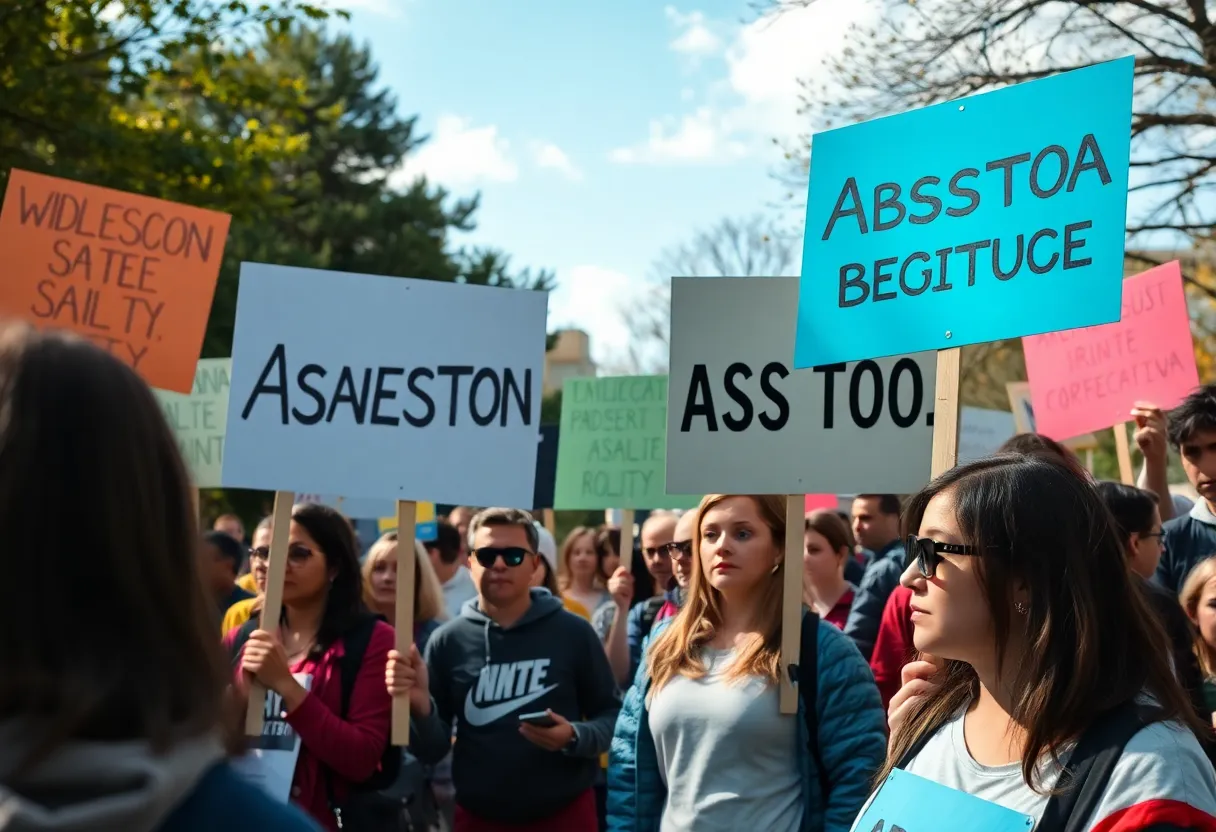News Summary
The Trump Administration’s announcement to uphold the chrysotile asbestos ban comes amidst public health advocates’ concerns over potential regulatory reversals. Chrysotile asbestos, linked to severe health risks, is the only type still being imported into the U.S. Despite a ban, discussions about reviewing regulations are stirring debate, as advocates call for comprehensive legislation to address asbestos exposure and protect public health.
Public Health Advocates Rally Against Asbestos Reconsideration
In a surprising turn of events, the Trump Administration has announced plans to uphold the ban on chrysotile asbestos, a decision that comes in the wake of significant public backlash. The ban had initially been revealed by the Environmental Protection Agency (EPA) in March 2024, reflecting growing concerns about the dire health risks posed by this pervasive material.
Understanding Chrysotile Asbestos
Chrysotile asbestos is recognized as the most common type of asbestos, historically utilized across numerous industries—from construction to automobile repair. The recent ban effectively prohibits the manufacturing, importation, and sale of this hazardous material within the U.S. However, while the ban seeks to protect public health, the EPA also revealed intentions to review its scope and potentially reverse certain regulations across various industries, igniting a debate regarding asbestos risks.
The Health Hazards of Asbestos Exposure
The dangers associated with asbestos exposure are well-documented. Asbestos fibers, when inhaled, can cause a range of serious health issues, including lung cancer, mesothelioma, and even ovarian cancer. Of particular concern is mesothelioma, a rare and aggressive cancer that arises in the lining of the lungs, abdominal cavity, or heart, often leading to a grim prognosis.
Alarmingly, chrysotile asbestos remains the only type still being imported into the U.S. as of 2023, raising fears among public health advocates. The current ban includes a staggered transition period, allowing industries up to a dozen years to find safe alternatives. Specifically, companies involved in chlorine production, which utilize asbestos diaphragms, have a compressed five-year timeline to phase out its use.
Historical Context and Legal Challenges
The use of asbestos surged dramatically during the mid-20th century, with its peak occurring between the 1950s and 1970s. This period marked an era where asbestos was a staple in a diverse array of products, such as insulation, gaskets, roofing materials, and brake pads. It wasn’t until scientific research linked asbestos exposure to severe health consequences that the tide began to turn. By the 1990s, many businesses either transitioned to alternative materials or faced significant financial strain due to lawsuits filed by victims of asbestos-related diseases.
Despite mounting evidence and public pressure, the EPA’s previous attempt to ban asbestos in 1989 was overturned by the Fifth Circuit Court of Appeals in 1991. This ruling ultimately allowed new asbestos uses to emerge post-1989, a decision that has had long-lasting implications on public health.
Current Legislative Landscape
Efforts to reinforce asbestos regulations continue, yet these initiatives frequently stall in Congress. Advocacy groups are calling for comprehensive legislation, such as the Alan Reinstein Ban Asbestos Now Act, to provide a more robust prohibition against all types of asbestos, not just chrysotile. Notably, New Jersey has enacted a total ban on the sale and distribution of asbestos-containing products, setting a precedent for stronger state-level protections.
The Public Health Impact
Asbestos exposure is attributed to nearly 20,000 diagnosed cases of cancer in the United States each year, underscoring the need for vigilance and robust regulatory frameworks. Advocacy groups are alarmed at the potential for reversed restrictions, which may lead to heightened exposure risks and an increase in health problems among Americans.
As the EPA prepares to assess the existing ban on chrysotile asbestos, public health advocates remain on high alert. The stakes are high, and with the history of legal and regulatory challenges surrounding asbestos, the path ahead may prove to be anything but straightforward.
Deeper Dive: News & Info About This Topic
HERE Resources
The Paradigm Shift in Mesothelioma Treatment: MARS2 Study Findings
Asbestos Discovery at Loyalist Bonfire Site Sparks Safety Concerns
Bonfire Ignites Controversy over Asbestos Site in Belfast
New Regulations Signal End of Chrysotile Asbestos Use
Controversial Northern Ireland Bonfire Ignites Amid Asbestos Warnings
Blue Lights Illuminate Action Mesothelioma Day at Acorn Analytical Services
Frank Krohmer Takes Action Against Corporations in Mesothelioma Case
Family Seeks Answers After Bruce Cook’s Mesothelioma Diagnosis
Asbestos Risks Haunting Home Buyers: What You Need to Know
The Asbestos Bonfire Dilemma: Tensions Rise in South Belfast



















